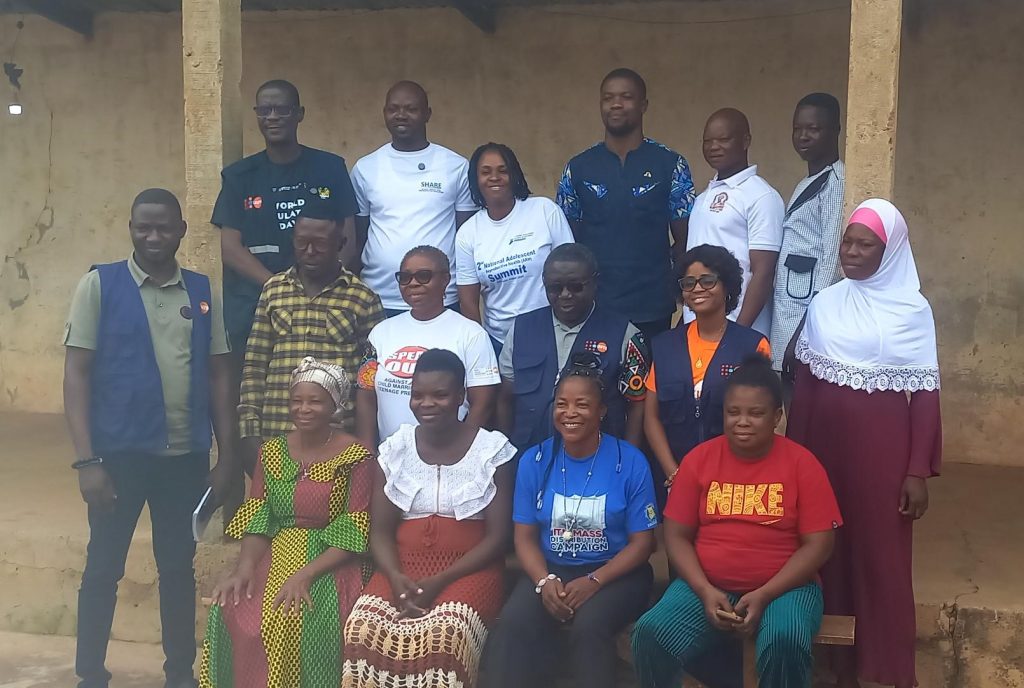By Anthony Adongo Apubeo
Sapeliga (U/E), Aug 23, GNA – The Peace Building Fund (PBF) Project being implemented in some border communities in the Upper East Region is contributing to enhancing cohesion and changing behaviours among residents.
Through the project, two border communities’ residents namely Sapeliga community in the Bawku West District and the Feo community in the Bongo are coexisting peacefully with the asylum seekers from Burkina Faso.
Additionally, the communities are modifying and eliminating some outmoded and dehumanising sociocultural practices such as widowhood rites, teenage marriage, child marriage and other gender-based and domestic violence.
These became known when officials from the United Nations Population Fund (UNFPA) and government officials paid a monitoring visit to the project areas to interact with the beneficiaries and to assess the impact of the project on the communities.
The two-year project is a collaboration by UNFPA and the United Nations Development Programme (UNDP) and being implemented at the communities by the Upper East Regional Coordinating Council and the Youth Harvest Foundation Ghana.
The project is aimed at preventing and addressing root causes of localised conflicts and vulnerabilities to violent extremism in Northern Ghana, particularly in the Upper East, Upper West and North East Regions.
Through the project, community leaders such as chiefs, queen mothers, youth, women leaders, religious leaders, and other opinion leaders were trained on building social cohesion, violent extremism, and other sociocultural and outmoded practices such as Female Genital Mutilation, incest, defilement, rape, gender inequality, among others.
Mr Baba Ayinga, Sapeliga Youth Leader, noted that the project empowered many people in the community to coexist peacefully with the asylum seekers who were being hosted by the government in the district as result of the disturbances in Burkina Faso.
“After the training, we also educated our community members on gender roles, sociocultural practices especially widowhood rites and gender-based violence and it is helping families to live peacefully and our girls’ education have also improved,” he said.
Pognaba Felicia Agampoka, Queen mother of Feo community, lauded the project, indicating that it has helped to educate families who hitherto did not prioritise girl child education and it was making significant gains.
This, she said, has contributed to reducing child marriage and teenage pregnancy cases in the area.
“The major issue that is still prevalent in this area is incest and it is a big issue here because children born of incest do not have inheritance and it sometime creates problems but we are sensitising them to know that we are all one and we need to care for each other”, she added.
Mr Eric Appiah Okrah, the UNFPA Monitoring and Evaluation Analyst, who led the delegation in an interview after the monitoring exercise, expressed satisfaction that the intervention was making positive impact and urged leaders to sustain the project.
He said the project employed local structures to promote peaceful coexistence among communities through resolution and prevention of localised conflicts and violent extremism while infusing issues of gender to enhance access to reproductive health information.
“Later in the year, we will have a review meeting and the findings we get here are supposed to be fed into our review meeting to help us plan next year’s activities. So, the lesson learnt especially the good practices are important for us and how we can share them so that others can emulate,” he added.
Other members of the delegation include Mammah Tenii, Programme Specialist and Head of UNFPA Tamale Decentralised Office, Mr Vitus Atanga, Programme Assistant in charge of Reproductive Health, Ms Mercy Love Alfa, Personal Assistant to UNFPA Representative, Ms Naomi Osei, Programme Oficer, National Population Council, Mr Nii-Odoi Odotei, Programme Officer, National Development Planning Commission and Ms Yvonne Wonchua, Gender Desk Officer, Upper East Regional Coordinating Council.

GNA